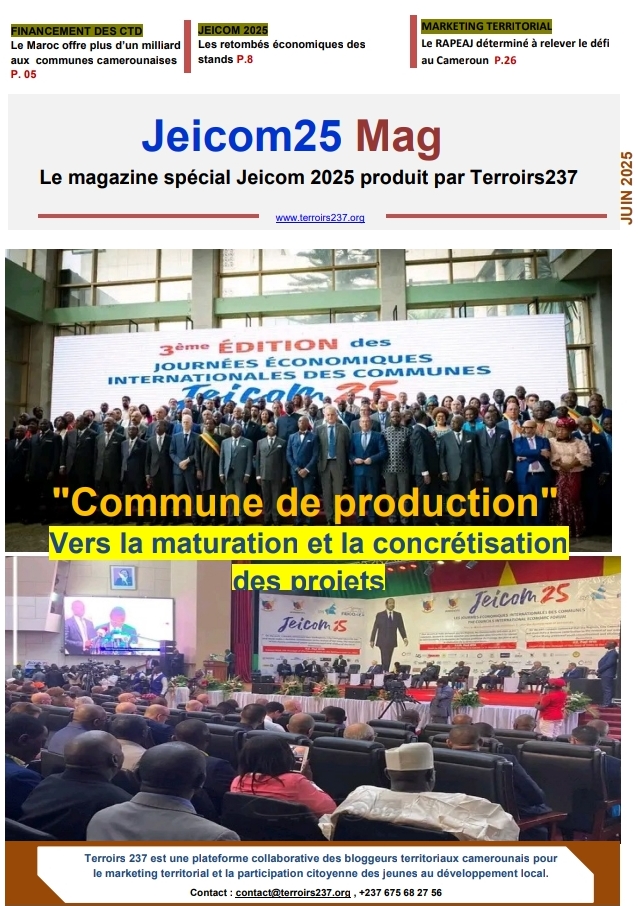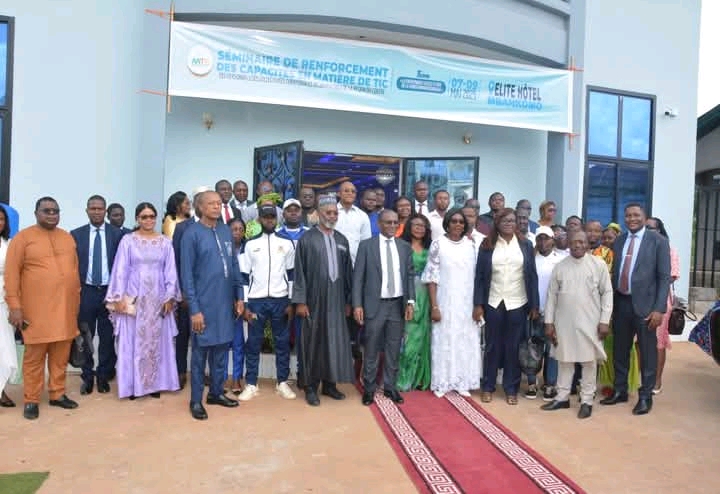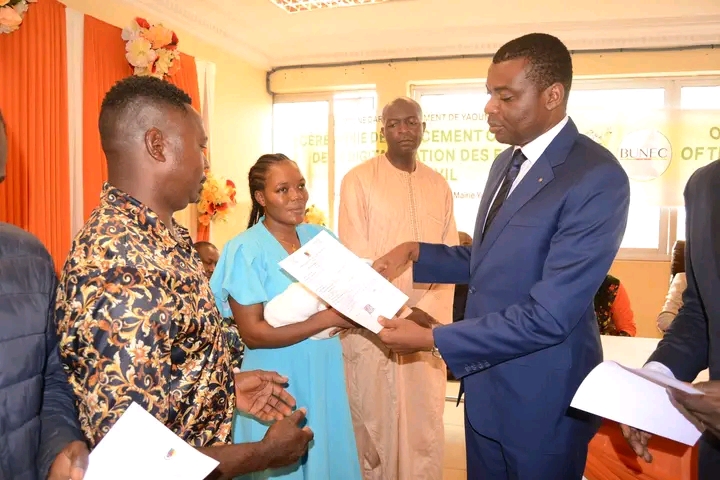Le magazine spécial Jeicom 2025 est disponible
La plateforme collaborative des blogueurs territoriaux TERROIRS 237 présente une édition spéciale consacrée aux Journées Économiques Internationales des Communes (JEICOM25), qui se sont déroulées du 2 au 4 juin 2025 au Palais des Congrès de Yaoundé. Ce numéro spécial offre une couverture de cet événement majeur pour le développement local au Cameroun à travers onze articles riches en informations : Un retour sur l’évolution des JEICOM depuis leur création en 2021; Les retombées économiques majeures des Jeicom 2025; Des focus sur des communes comme Pitoa , Toko, Mayo-Darlé et Mindourou; Une analyse approfondie de l’impact des JEICOM sur la croissance des communes; Un dossier spécial sur le rôle des femmes dans le développement local; Une présentation de l’ initiative innovante en matière de marketing territorial du RAPEAJ. Le magazine propose également une rubrique numérique permettant de revivre les moments forts de l’événement à travers différents supports digitaux. Cette édition spéciale met en lumière le dynamisme des communes camerounaises et l’importance croissante des JEICOM comme plateforme de développement local et de coopération internationale. Le magazine est disponible ici : JEICOM2025_MAG



